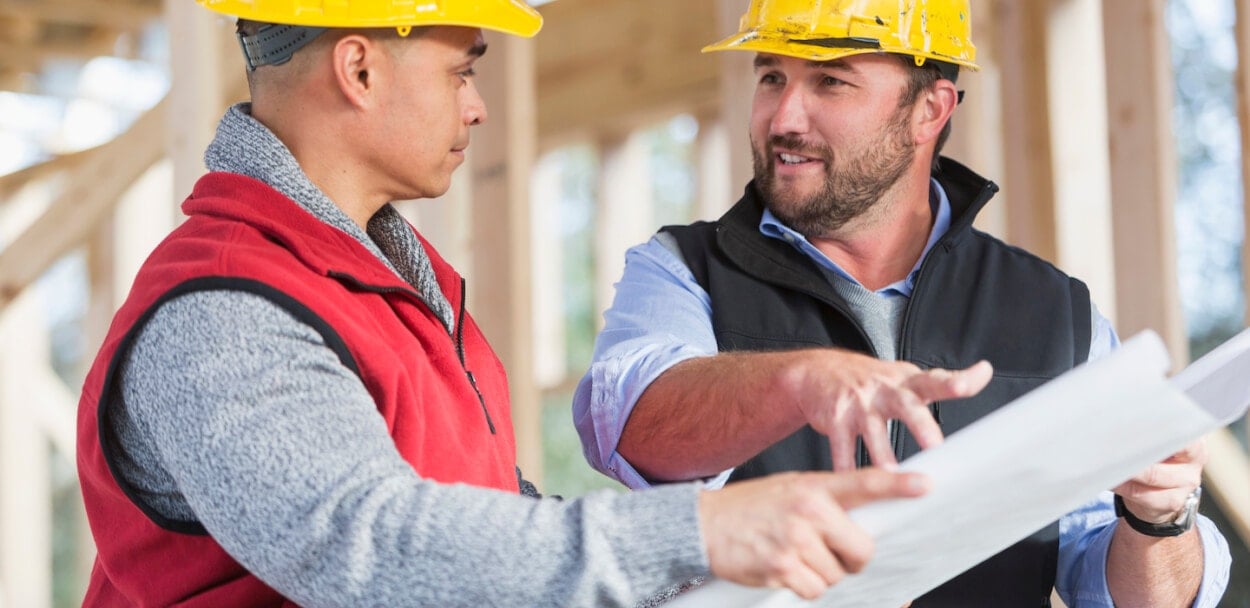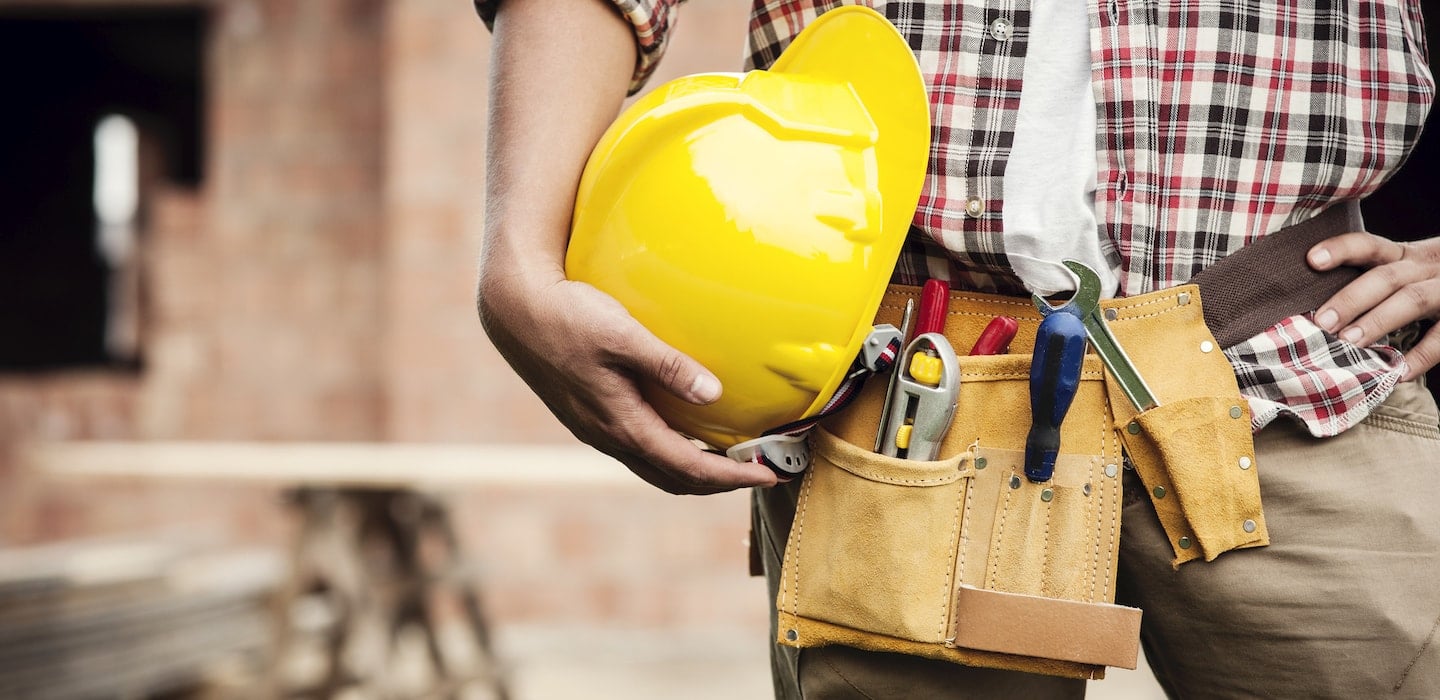As a contractor, where would you be without the tools of your trade? Whatever fields of construction you have experience working in, your day-to-day operations depend on the valuable equipment you, your subcontractors, and your workers use to get the jobs done. From a simple screwdriver to an elaborate reciprocating saw, having the right tools is half the job.
And on your jobsite, you know how important it is to keep your tools safe, clean, organized, and well-maintained. You do everything in your power to make sure they last as long as possible. But what about what’s beyond your control?
Enter contractors equipment insurance.
What is contractors equipment insurance?
Also known as heavy equipment insurance, contractors equipment insurance is essential coverage for any general contractor working on, or between, all kinds of job sites. It’s there to make sure that if your tools and other gear are negatively impacted by accidents or crimes, neither you nor your construction business will be saddled with the whole burden of recovering the expense.
It offers protection against costs associated with:
• Repair or replacement of broken equipment
• Replacement for lost, stolen, or vandalized equipment
And, contractors equipment insurance covers all kinds of light, medium, and heavy hardware, including but not limited to:
• General devices – ladders, tool buckets, organizers, etc.
• Mechanical tools – hammers, pliers, screwdrivers, etc.
• Power tools – circular saws, drill drivers, etc.
• Heavy machinery – backhoes, trench diggers, bulldozers, etc.
While it may sound surprising, the insurance you can count on for all your construction gear is a form of…
Inland marine insurance
While it sounds like a contradiction, combining land and sea, or like it has to do with a branch of the U.S. military, inland marine insurance is all about property. It’s a branch of ocean marine insurance, which covers packages being shipped over bodies of water.
Inland marine insurance, instead, covers property on land.
It can cover all kinds of property—from single unique or valuable items to large quantities of individually cheap items that are collectively valuable—as the umbrella extends far and wide.
And it can cover these items in a variety of circumstances, such as:
• Property In transit, such as in commercial vehicles
• Property in storage, short- or long-term
• Property stationed in a fixed location (a job site)
Typically, a contractor equipment or heavy equipment insurance policy is a special, relatively small type of inland marine insurance policy. It’s one that every general contractor should consider, regardless of scope or scale of your business.
Do you need contractors equipment insurance?
The short answer: yes, probably.
The longer answer has to do with what kinds of equipment you use, what kinds of risks your hardware faces, and your ability to recover from loss without insurance. Even the most cautious contractors face numerous risks outside their own control when it comes to their equipment.
For example, if you are meticulous about cleaning and securing a job site, your tools will be neatly organized by the end of the day to ensure they’re easy to access the following workday. But what if the job site is broken into overnight and all of your tools are missing the next morning? Besides delaying your project and potentially being sued for a missed deadline, you would now have to replace all the missing tools.
Depending on the job site, that tool haul could be expensive!
Contractors equipment insurance can help with the replacement costs, getting at least that concern out of the way. But for the other issues, you’ll need additional insurance policies.
Other insurance you need as a contractor
In addition to contractors equipment insurance, there are other kinds of coverage you may be legally required to take out, and others still that it would be smart to carry. Construction is dangerous. It involves moving parts and bodies, unfinished structures and surfaces, heavy machinery, heights, and any number of other potential risks.
Being in a field as inherently dangerous as construction means that you should consider insurance plans like:
• Workers’ compensation insurance – If you hire workers to help you finish projects, you need to make sure they’re covered for injuries sustained on the job.
• Commercial auto insurance – If your business makes use of any commercial vehicles, such as vans or trucks, you need to make sure they’re covered in case of a collision.
• Builders’ risk insurance – You should also consider coverage for damage to the client’s property while it’s under construction, since job sites are often at risk of being targeted for theft and vandalism, and are particularly vulnerable to natural disasters.
• Professional liability insurance – Beyond damage to clients’ property, you should also protect yourself in the event that a client is otherwise displeased with your work, claiming that your services caused them financial loss, and files a lawsuit.
•General liability insurance – And, finally, you should make sure to get coverage for all kinds of third-party risks, like lawsuits and ensuing legal and medical costs from non-employees who are injured on the job site.
That’s a lot of different coverages! Thankfully, though, there are ways to bundle certain plans together to cut down on both costs and headaches that come with having too many plans to keep track of.
That’s where we come in.
Simplify your contractor insurance
Here at Thimble, our mission is connecting small business owners with easy, affordable insurance you can customize to your own specific needs.
We want to help you minimize the time you spend thinking about your insurance so you can get out there and do what you do best. We also want to connect you to insurance that meets your actual needs as a contractor, not a bundle made for any business owner. That’s why we’ve revolutionized insurance and made it possible to purchase coverage by the hour, day, or month.
Get a contractor insurance policy in just 60 seconds. Answer a few simple questions and in under a minute, you can lock down coverage for third-party claims of:
• Bodily injury
• Property damage
• Defense and Medical costs
• Personal and advertising injury
So, what are you waiting for? Get covered now so you can focus on building the homes and spaces that define your community.











